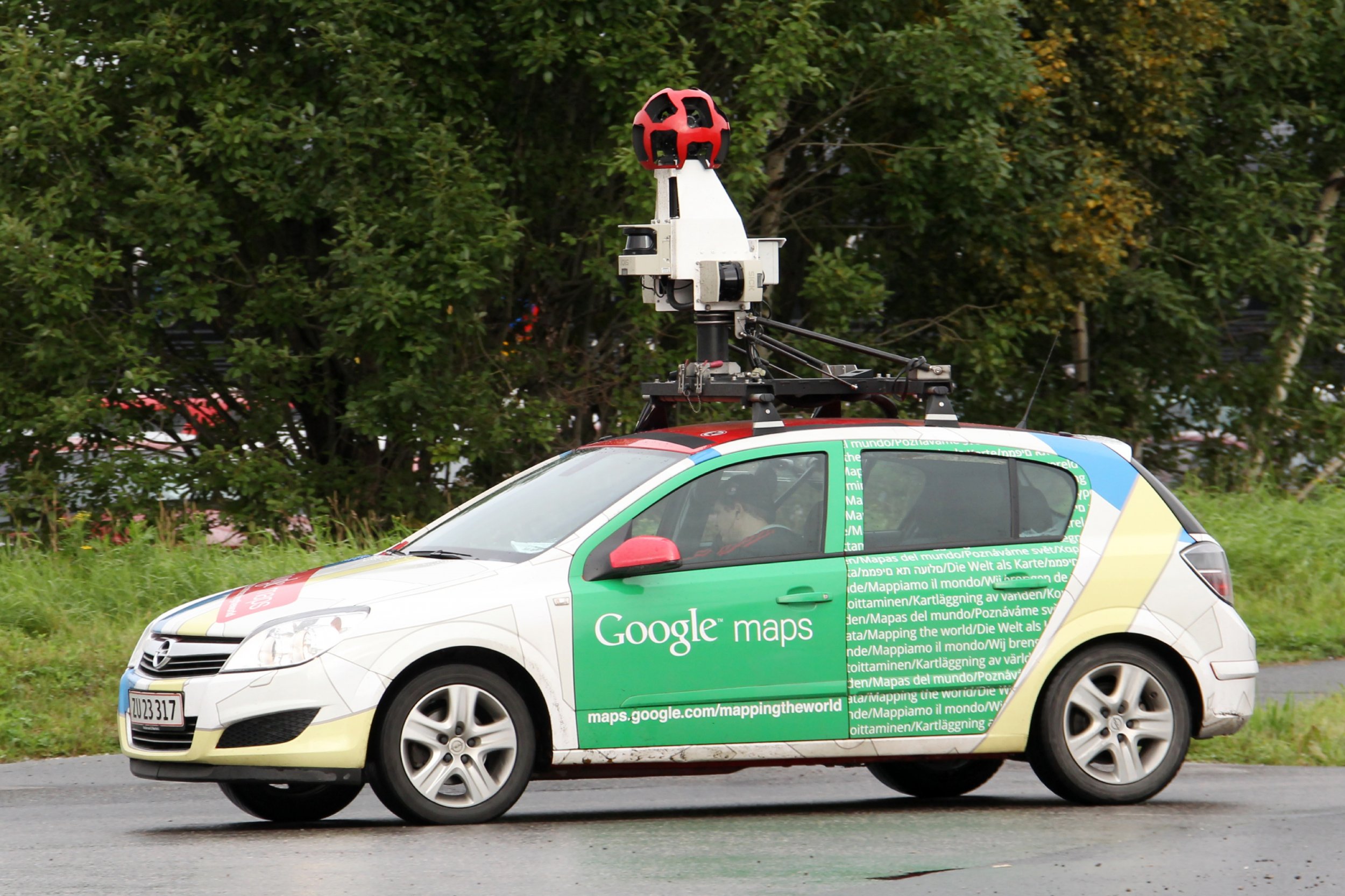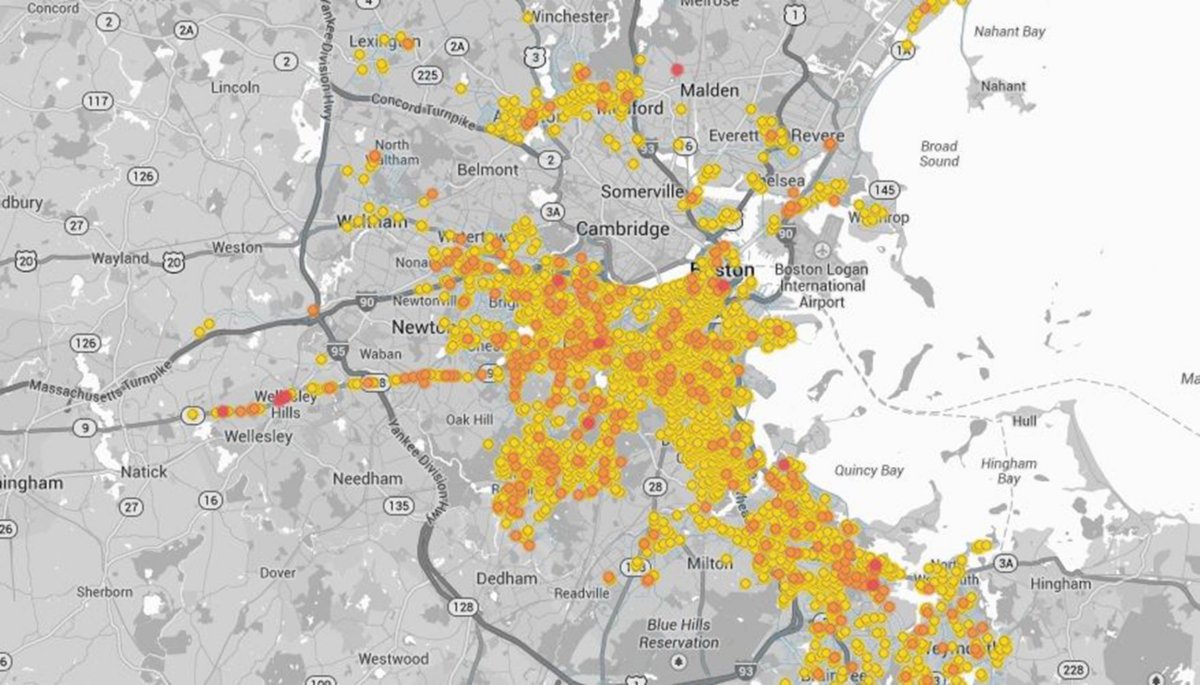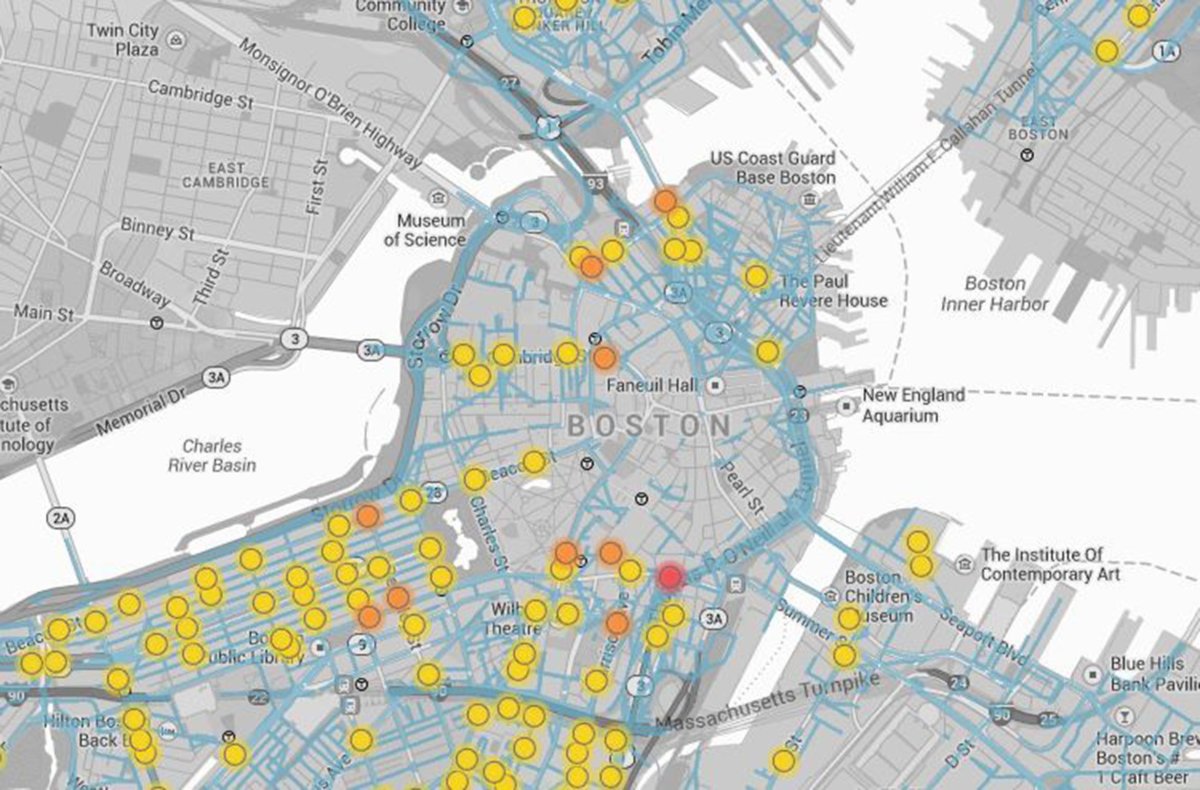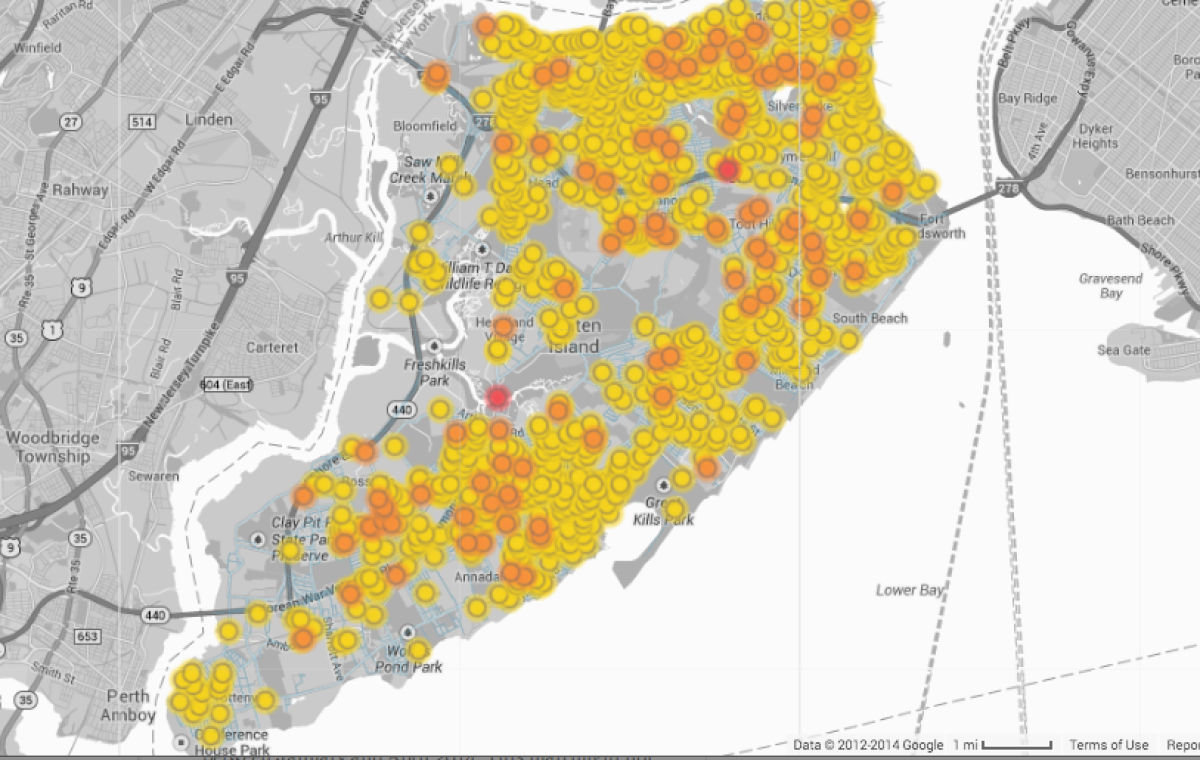
Google Street View's mapping cars have been taking more than just visual scans while touring the streets of three U.S. cities lately. In Boston, Staten Island, and Indianapolis, Google's cars were equipped with methane sensors, to pinpoint the locations and severities of thousands of natural gas leaks, a chronic problem for many cities. The mapping project is a pilot program helmed by the nonprofit Environmental Defense Fund to gather data and encourage infrastructure repairs. Methane is an especially potent greenhouse gas; it is roughly 120 times more effective at trapping heat in the atmosphere (and therefore at driving climate change) than carbon dioxide, if compared pound for pound.
The cars pinpointed the size and locations of several thousands of gas leaks from distribution pipes that snake under the cities' streets. Each leak was scanned twice for accuracy, and translated on to a series of interactive maps, which launched online Wednesday. Google and EDF plan to expand the project into more cities and broaden the range of detection to a host of other pollutants, like ozone, benzene, carbon monoxide, and several volatile organic compounds.
Boston's aging, corrosion-prone natural gas pipelines are infamous for gas leaks; a 2012 study found gas leaking from more than 3,300 places underground. Six of those leaks were registered to be in excess of the level where explosions could occur. Google Street View's readings, taken in 2013, found an average of one leak per square mile of the city driven, or approximately the same leak rate as found in the 2012 study. Check out the interactive Boston map here.


Last month, Massachusetts Governor Deval Patrick signed a bill meant to accelerate repair of pipeline leaks, and put a stronger emphasis on detection.
The cars also found nearly 1,000 leaks on New York's Staten Island. Radio station WNYC reports that New York has some of the oldest and leakiest pipes in the nation, with the largest portion of gas mains dating back to before 1940 than any other large system in the country. The system came under particular scrutiny after a gas explosion in March killed eight people and leveled two buildings in East Harlem. Check out the interactive Staten Island map here.

"Until now, these smaller leaks have not been a priority in most places. Yet we can see from these maps just how much they can add up," Mark Brownstein, EDF's associate vice president, said in a statement. "By pulling vast amounts of information together in a place that offers simple, clickable visualization, the platform is going to be an important advocacy tool, one that helps shift resources to an area of historic underinvestment."
Aside from the potential for explosion hazards and the gas's major contribution to climate change, inhaling enough methane can cause dizziness, fatigue, nausea, headache, and irregular breathing, though inhaling it at low levels for short periods of time is not considered a threat human health. Leaking natural gas underground can also damage vegetation like grass and trees by displacing oxygen in the soil.
Uncommon Knowledge
Newsweek is committed to challenging conventional wisdom and finding connections in the search for common ground.
Newsweek is committed to challenging conventional wisdom and finding connections in the search for common ground.
About the writer
Zoë is a senior writer at Newsweek. She covers science, the environment, and human health. She has written for a ... Read more
To read how Newsweek uses AI as a newsroom tool, Click here.








